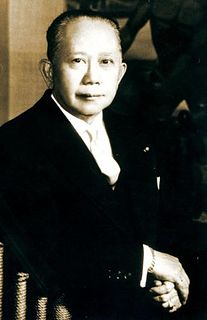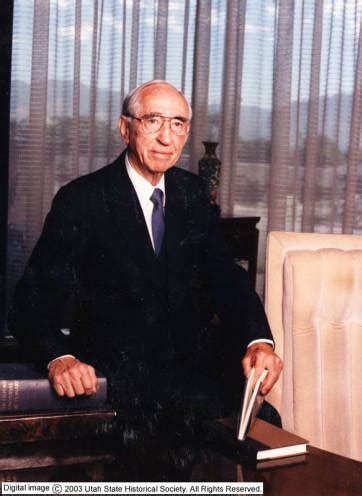A Quote by Matthew Arnold
Nations are not truly great solely because the individuals composing them are numerous, free, and active; but they are great when these numbers, this freedom, and this activity are employed in the service of an ideal higher than that of an ordinary man taken by himself.
Related Quotes
Every man has at times in his mind the Ideal of what he should be, but is not. This ideal may be high and complete, or it may be quite low and insufficient; yet in all men, that really seek to improve, it is better than the actual character... Man never falls so low, that he can see nothing higher than himself.
You have just taken an oath of allegiance to the United States. Of allegiance to whom? Of allegiance to no one, unless it be God. Certainly not of allegiance to those who temporarily represent this great government. You have taken an oath of allegiance to a great ideal, to a great body of principles, to a great hope of the human race.
How does one chip off the marble that doesn't belong? ... That comes about through five things: humility, reverence, inspiration, deep purpose, and joy. No great man has ever wise-cracked his way to greatness. Until one learns to lose one's self he cannot find himself. No one can multiply himself by himself. He must first divide himself and give himself to the service of all, thus placing himself within all others through acts of thoughtfulness and service.
It is certain that despotism ruins individuals by preventing them from producing wealth much more than by depriving them of what they have already produced; it dries up the source of riches, while it usually respects acquired property. Freedom, on the contrary, produces far more goods than it destroys; and the nations which are favored by free institutions invariably find that their resources increase even more rapidly than their taxes.
The sense that a man is serving a Higher than himself, with a service which will become ever more and more perfect freedom, evokes more profound, more humbling, more exalted emotions than any thing else in the world can do. The spirit of man is an instrument which cannot give out its deepest, finest tones, except under the immediate hand of the Divine Harmonist.
It was during those long and lonely years that my hunger for the freedom of my own people became a hunger for the freedom of all people, white and black. I knew as well as I knew anything that the oppressor must be liberated just as surely as the oppressed. A man who takes away another man's freedom is a prisoner of hatred, he is locked behind the bars of prejudice and narrow-mindedness. I am not truly free if I am taking away someone else's freedom, just as surely as I am not free when my freedom is taken from me. The oppressed and the oppressor alike are robbed of their humanity.
Hero-worship is the deepest root of all; the tap-root, from which in a great degree all the rest were nourished and grown . . . Worship of a Hero is transcendent admiration of a Great Man. I say great men are still admirable; I say there is, at bottom, nothing else admirable! No nobler feeling than this of admiration for one higher than himself dwells in the breast of men.
Because all the societies, all the nations, all the cultures, have taken it for granted that the individuals exist for them, not vice-versa. To me, just the opposite is the case: the society exists for the individual, the culture exists for the individual, the nation exists for the individual. Everything can be sacrificed, but the individual cannot be sacrificed for anything. Individuality is the very flowering of existence - nothing is higher than it. But no culture, no society, no civilization is ready to accept a simple truth.
The church isn't simply a collection of isolated individuals ... we need to learn again the lesson that a hand is no less a hand for being part of a larger whole, an entire body. The foot is not diminished in its freedom to be a foot by being part of a body which also contains eyes and ears. In fact, hands and feet are most free to be themselves when they coordinate properly with eyes, ears, and everything else. Cutting them off in an effort to make them truly free, truly themselves, would be truly disastrous.
Perhaps the highest goodness attainable is a life of service to all mankind. Such an ideal is supported in nearly every page in the Gospels-the parables, the sermons, and the countless acts of service by our Lord Himself. The ideal is not limited to any particular kind of service, nor a given quantity of service. The ideal is accepting life itself as a trust to be used in the welfare of mankind. It is a life that is glad for the chance to be of any help, an attitude that 'service is the rent we pay for our own room on earth.' (Lord Halifax)






































